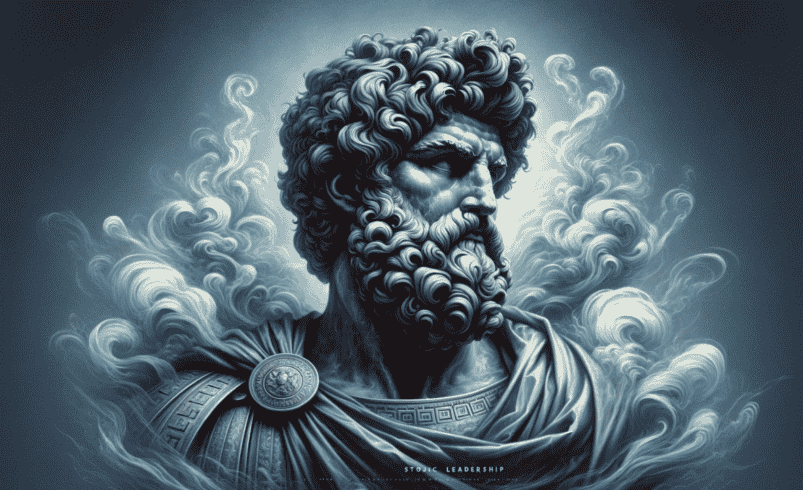Discover What is Stoicism? and how it can guide modern life beyond popular self-help books. Explore its enduring wisdom today. In today’s world, many of us turn to popular self-help books like How to Win Friends and Influence People, Think and Grow Rich, and The 7 Habits of Highly Effective People for guidance. These books offer valuable advice, but it’s important to recognize that they are rooted in timeless philosophies that have stood the test of time. One such philosophy, Stoicism, is especially relevant today and has influenced some of the greatest minds in history.

What is Stoicism?
Stoicism is not just a set of rigid guidelines for how to live your life it’s a profound and enduring philosophy that has shaped the way many great thinkers, leaders, and individuals approach the challenges of life. While it has gained renewed popularity in recent years, particularly in self-help and personal development circles, Stoicism’s roots trace back to ancient Greece and Rome, where it was practiced by some of the most influential philosophers and leaders in history, such as Marcus Aurelius, Seneca, and Epictetus.
At its core, Stoicism is a philosophy that teaches us how to navigate the complexities of human existence with wisdom, resilience, and inner peace. Life is filled with uncertainties, struggles, and frustrations, and it’s easy to feel overwhelmed by the constant barrage of challenges we face. Whether it’s dealing with personal setbacks, difficult relationships, or the ever-changing circumstances around us, Stoicism offers practical tools for maintaining a sense of tranquility and perspective, no matter what life throws our way.
Rather than focusing on external circumstances or trying to control the world around us, Stoicism encourages us to turn inward and focus on what we can control our thoughts, actions, and responses to the events of life. By understanding and embracing the principles of Stoicism, we can build emotional resilience, improve our decision-making, and live a life that is more aligned with our values and true purpose.
The Roots of Stoic Philosophy
Throughout history, renowned philosophers like Marcus Aurelius, Seneca, and Epictetus have shared their wisdom on Stoicism. Today, we’ll explore this philosophy through the letters of Seneca, particularly his book Letters from a Stoic. By the end of this article, you’ll not only understand Stoicism but also gain a deeper insight into how it can shape your own life.
The Life and Philosophy of Seneca
Seneca was not just a philosopher he was also a playwright and statesman. However, his true fame came from his Stoic philosophy. His letters to Lucilius, a Roman official, offer a deep dive into Stoicism and provide timeless wisdom. Letters from a Stoic includes 124 letters Seneca wrote shortly before his death. These letters are unique because they are accessible to anyone, offering practical advice that anyone can understand and apply to their own life.
Key Concepts of Stoicism
At the heart of Stoic philosophy is the belief that our minds set us apart from animals and everything else in nature. While animals focus on survival eating, drinking, and reproducing humans have the ability to think rationally. According to Stoicism, rational thinking is what makes us human, and when we use our minds wisely, we achieve true wisdom.
The Goal of Life
For Stoics, wisdom is the highest goal in life. But what does it mean to be wise? Wisdom, according to Stoicism, isn’t just about accumulating knowledge it’s about living in harmony with nature. Seneca believed that the natural path for humans is to lead simple lives, free from the pursuit of wealth, fame, and worldly pleasures. By aligning ourselves with nature, we can find true happiness.
Gaining Wisdom
While reading and learning are essential, Stoicism teaches that wisdom comes not just from books but from living a life in accordance with philosophy. Philosophy is the key to understanding the truth about life, the universe, and even the divine. By studying philosophy deeply, we can make better decisions that lead to a happier life.
Understanding Life and Death through Stoicism
One example of how Stoicism shifts our perspective is on the subject of death. Many people fear death, but Stoics teach that death is a natural part of the universe, and therefore, there’s no need to fear it. By accepting death as part of the natural order, we can live more freely and with greater purpose. Similarly, Stoics emphasize that seeking fleeting pleasures, like indulging in alcohol or accumulating wealth, will only bring temporary joy. True happiness comes from living simply and aligning ourselves with nature’s plan.
The Importance of Deep Study
To truly understand Stoicism, you cannot rely on superficial knowledge. Seneca emphasized that to gain wisdom, you must study deeply, whether it’s the works of Zeno, Aristotle, or Plato. By comparing the ideas of various philosophers, you can carve your own path toward wisdom and personal growth.
The Stoic Metaphor
Seneca uses the metaphor of a ship to illustrate the importance of a well-ordered mind. Imagine a large ship loaded with cargo if the cargo isn’t properly secured, the ship will eventually sink. Similarly, a disordered mind is like an unbalanced ship, unable to navigate life’s challenges. By maintaining mental clarity and focus, we can face life’s storms with resilience and wisdom.
Peace of Mind
One of the core teachings of Stoicism is that true peace of mind comes from within, not from external circumstances. We can’t control the events of the world, but we can control our response to them. By focusing on cultivating inner peace, Stoicism teaches us how to weather life’s challenges without becoming overwhelmed.
The Power of Living in Harmony with Nature
In today’s world, we’re bombarded with temptations expensive clothes, flashy cars, and the constant pressure to outperform others. Stoicism teaches that these material desires only distract us from what really matters: living in harmony with nature. When we let go of these superficial desires, we free ourselves from the need to compare and compete with others.
Facing Fears
One of the most powerful aspects of Stoicism is its approach to fear. The Stoics believed that in order to grow and achieve wisdom, we must confront our fears. Ask yourself: What are you afraid of? Whether it’s losing wealth, status, or loved ones, Stoicism teaches that we should embrace our fears, as they hold the key to personal growth.
Embracing Death: A Stoic Perspective
The greatest fear for many people is death, but Stoicism encourages us to view death not as something to fear but as a natural part of life’s cycle. As Abraham Lincoln famously said, “In the end, it’s not the years in your life that count, it’s the life in your years.” A short, purposeful life is far more valuable than a long, meaningless one.
The Role of Divine Providence in Stoicism
Seneca, and other Stoic philosophers like Epictetus, emphasized the importance of accepting death and hardship as part of a divine order. While this may seem difficult to accept, the Stoics believed that everything happens for a reason. For instance, Epictetus argued that we should not be disturbed by the death of a loved one, as it is part of the cosmic plan.
Focusing Only on What You Can Control
One of the central tenets of Stoicism is to focus solely on what you can control. For example, if you’re waiting for a delayed train, it’s not your fault. Instead of stressing about things outside your control, Stoicism teaches that you should focus on how you respond to them.
My Critique of Stoicism
While Stoicism offers valuable insights into living a peaceful life, I believe it has some limitations. For instance, Stoicism’s emphasis on aligning with nature may stifle human progress and personal growth. It discourages the pursuit of personal success and challenges, which are crucial for growth. Additionally, the Stoic acceptance of divine providence sometimes encourages passivity, whereas I believe we should strive to change our circumstances rather than merely accept them.
The Balance Between Rational Thinking and Emotions
Stoicism offers many valuable lessons, especially in cultivating inner peace and wisdom. However, I believe that a true path to happiness lies in balancing rational thinking with emotional resilience. Embracing challenges, striving for growth, and pushing forward in life are essential for creating meaning and purpose in our lives. By learning from Stoicism and applying its principles, we can navigate life’s uncertainties with wisdom and find lasting peace within ourselves.




